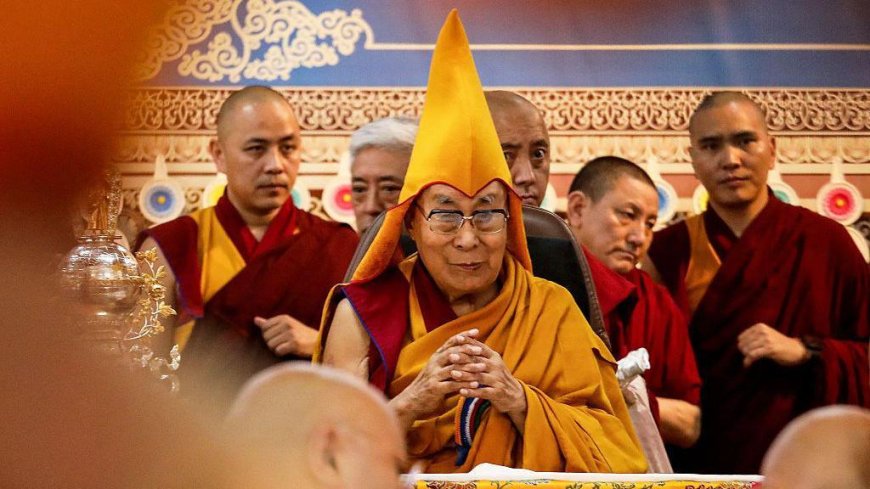Diplomatic Tensions Rise as Beijing Warns New Delhi Over Dalai Lama Succession Remarks
Beijing cautions India to “act cautiously” after minister Kiren Rijiju backs Dalai Lama’s right to choose his successor, reigniting sensitive diplomatic fault lines.

A Flashpoint Rekindled
Beijing issued an unusually sharp caution this week after Union minister Kiren Rijiju said that only the Dalai Lama and Tibetan tradition should decide the 89‑year‑old spiritual leader’s successor. China’s foreign‑ministry spokesperson Mao Ning urged India to “act cautiously” on Tibet‑related matters, warning that “irresponsible words or deeds” could undermine the fragile détente painstakingly built since the 2020 border clashes. indiatoday.inwsj.com
Rijiju, a former Minister of Law and Justice and a self‑declared Buddhist, had told reporters that “no external power” could name the 15th Dalai Lama. He framed his comments as personal faith, yet Beijing interpreted them as an official position challenging its 2007 decree that all senior Tibetan reincarnations, including the Dalai Lama, must obtain Chinese government approval. m.thewire.in
India’s Measured Response
Caught between domestic support for the Dalai Lama and a volatile border with China, the Ministry of External Affairs quickly clarified that New Delhi “takes no position on matters of faith.” It reiterated India’s commitment to freedom of religion while stressing that Tibet remains an internal Chinese affair—an echo of the 2003 agreement that acknowledged Tibet Autonomous Region as part of China. timesofindia.indiatimes.com
Yet officials privately concede that any Chinese‑appointed successor could spur unrest among the 110,000‑strong Tibetan refugee community in India and complicate already frosty ties along the Line of Actual Control.
Why the Succession Matters
The 14th Dalai Lama has hinted his next incarnation might be born outside Tibet “in a free country,” a statement perceived in Beijing as a direct threat to its control over Tibetan Buddhism. Analysts warn that duelling claimants—one endorsed by Beijing, another by the Tibetan Government‑in‑Exile in Dharamshala—could ignite a legitimacy battle reminiscent of the Panchen Lama dispute. independent.co.uk
Prof. Deepa M. Ollapally, George Washington University:
“A contested succession risks becoming the most combustible issue in Sino‑Indian relations since Doklam. It transcends religion; it’s about sovereignty narratives.”
Beijing’s Strategic Messaging
China’s rapid pushback aligns with President Xi Jinping’s broader campaign to quash what it calls “separatism” in Tibet. Officials routinely cite the 1792 Qing‑era Golden Urn edict to justify state approval over reincarnations—an argument India quietly disputes by hosting the Dalai Lama since his 1959 flight across the Himalayas. wsj.com
Diplomats say the warning also signals that China will link progress in other talks—on disengagement in eastern Ladakh or resuming high‑level visits—to India’s posture on Tibet.
Domestic Optics in New Delhi
Rijiju’s remarks resonated across India’s north‑eastern states, many of which share Buddhist heritage and remain wary of Chinese territorial claims. Political observers note that a strong stance on Tibetan autonomy can galvanize support ahead of key state elections without formally breaching the “One‑China” policy.
Conversely, the government must safeguard billion‑dollar trade flows and supply‑chain diversification efforts such as the India‑Middle East‑Europe Economic Corridor. Risking commercial retaliation—Beijing briefly halted Indian pharmaceutical imports in 2022—could undercut Prime Minister Modi’s manufacturing push.
Potential Diplomatic Off‑Ramps
-
Quiet Back‑Channel Dialogue
Retired envoys suggest reviving the Special Representatives’ mechanism—dormant since 2019—to create a parallel track on “cultural and humanitarian issues,” letting each side save face. -
Joint Academic Forum
A resurrection of the Nalanda–Peking University dialogue could defuse rhetoric by emphasizing scholarly exchange over political posturing. -
Multilateral Mediation
With India hosting the BIMSTEC summit later this year, discreet third‑party facilitation could lower temperatures without formal arbitration.
What Lies Ahead
The Dalai Lama turns 90 next year. Should his health falter before a compromise emerges, rival succession plans could harden nationalisms on both sides. For New Delhi, balancing strategic autonomy with principled support for Tibetan culture will test its diplomatic agility.
For Beijing, every word uttered in India about Tibet is now a barometer of intent—proving that even a personal remark by a single minister can ripple across one of the world’s most consequential borders.














